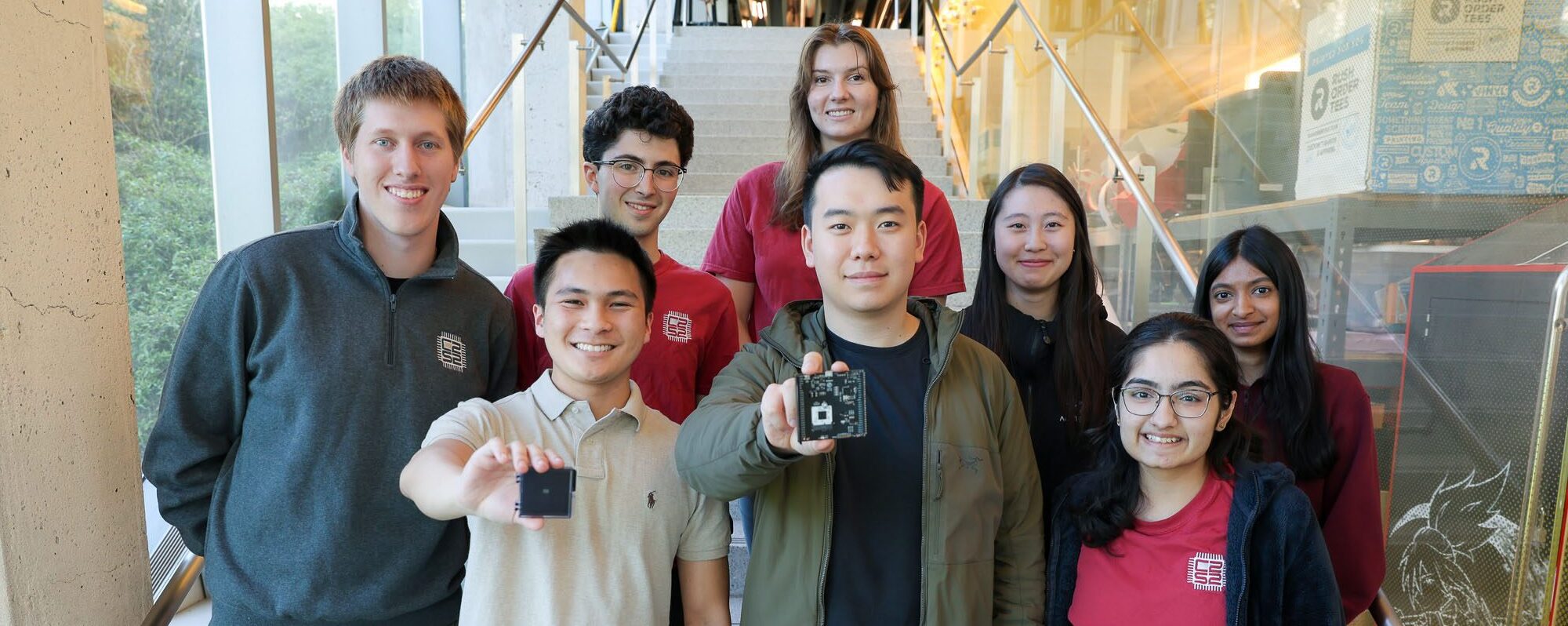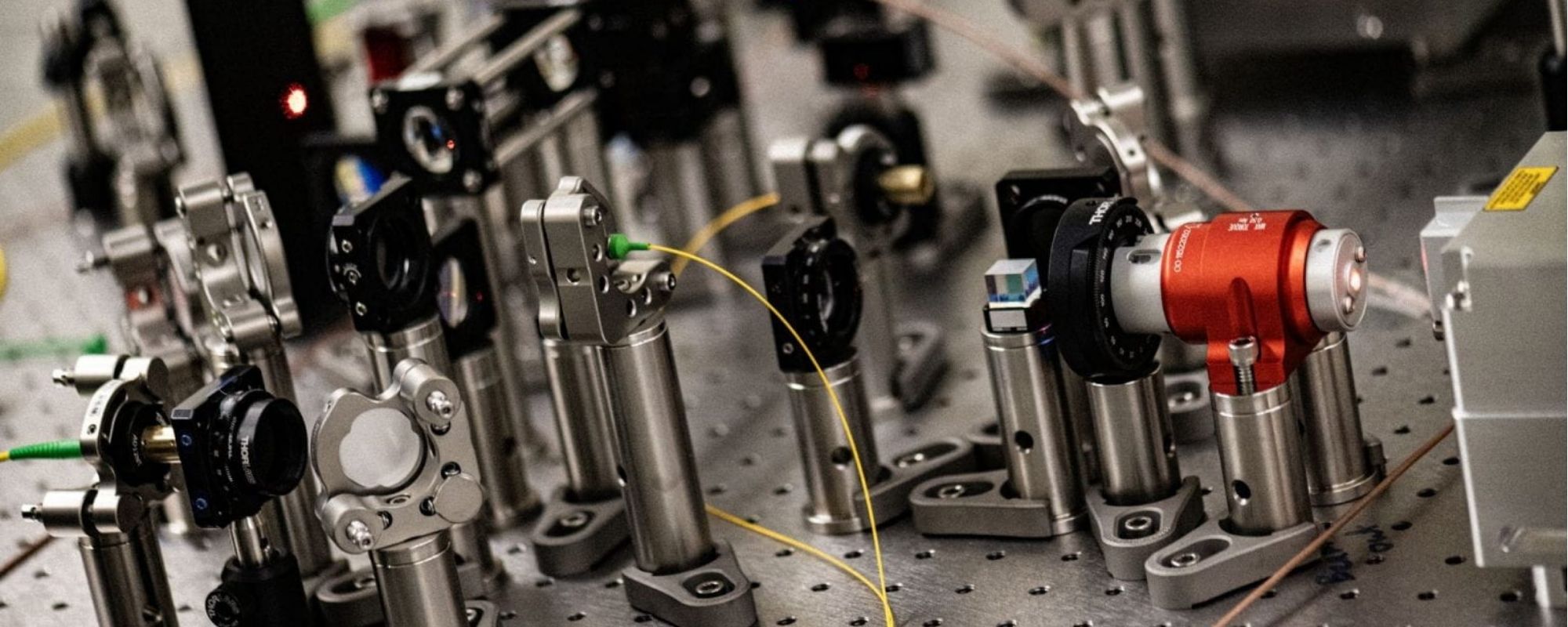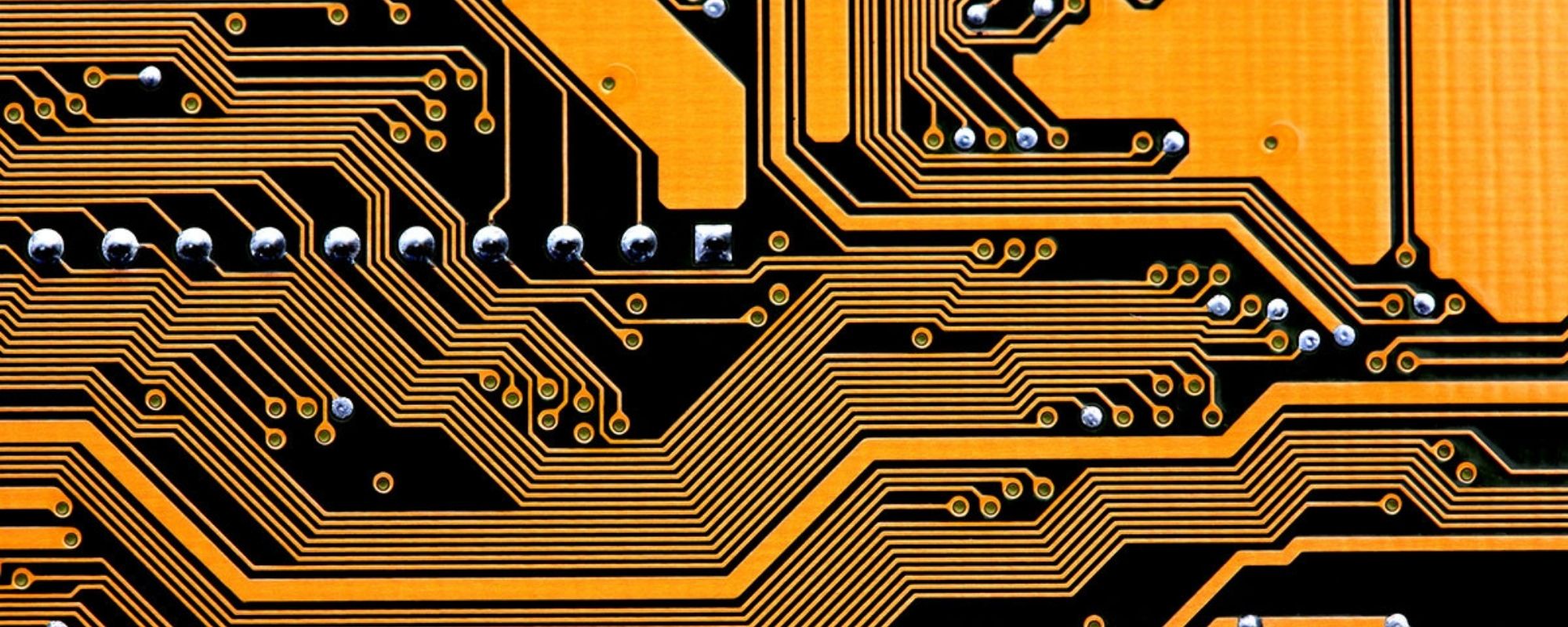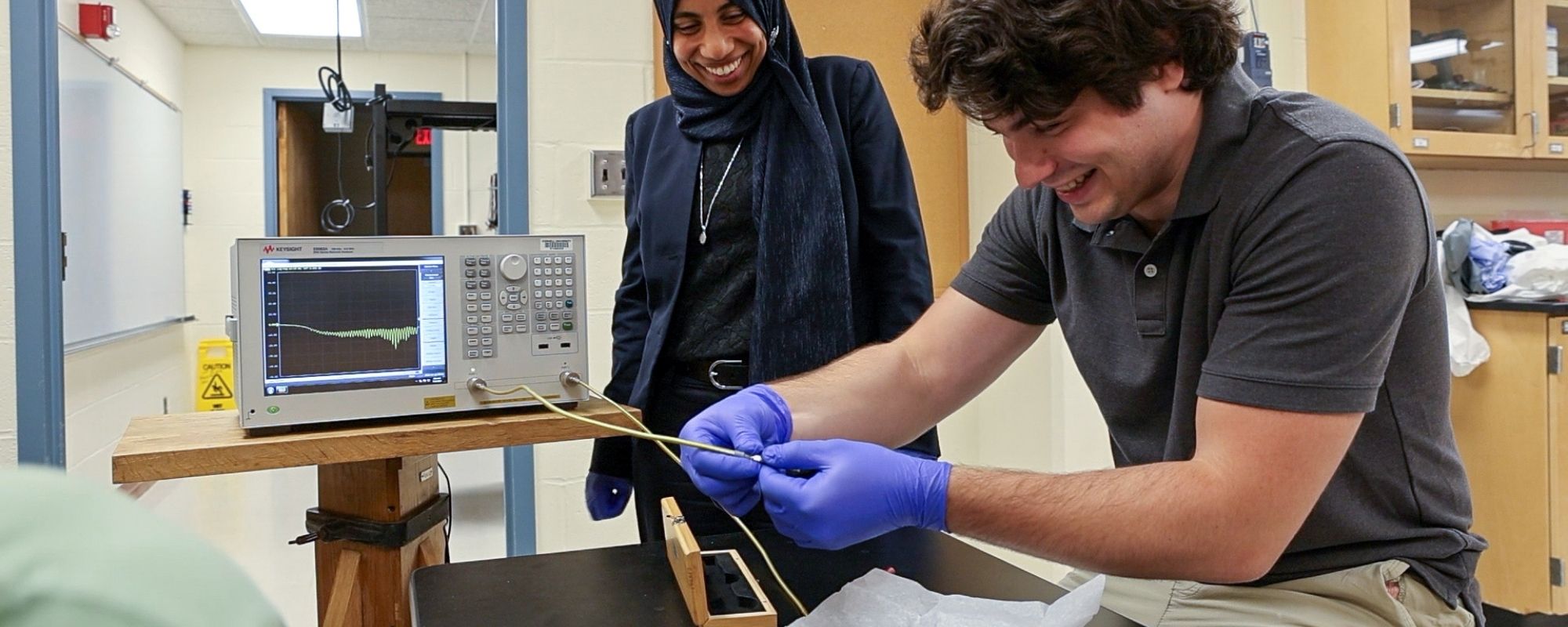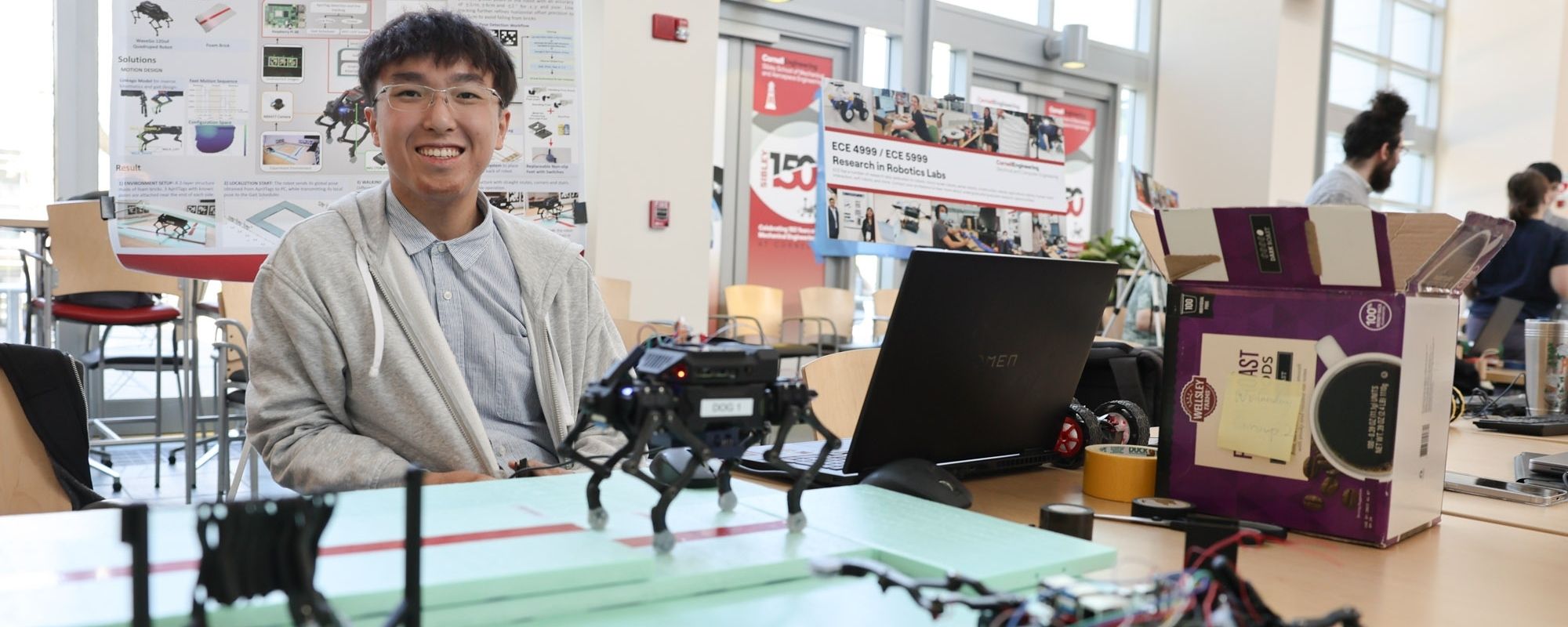What will a Cornell Electrical and Computer Engineering M.Eng. degree do for me?
-
Gain access to some of the world’s finest faculty, pioneers and global leaders in their fields who are committed to supporting students and encourage independent thinking.
-
Develop leadership skills in an environment where challenges demand collaborative teamwork, critical thinking, and effective communication.
-
Push the limits of imagination through your professional design project in an unparalleled variety of fields, a project that will help open doors to your future career.
-
Be part of a vibrant, warm, and multicultural graduate community while you learn new, interesting, and useful skills you need to tackle some of the world’s most important problems and improve the quality of life on our planet.
-
Benefit from Cornell’s global reputation, top rankings, and Ivy League prestige. After graduation, join an expansive network of esteemed alumni, including clubs, the Cornell Entrepreneur Network, and various programs and services for graduates.
-
Command a higher starting salary than the national average for an ECE bachelor’s degree.
Strategic Areas of Focus
-
![Karan Mehta's Photonics and Quantum Electronics Group lab equipment]()
Bio-Electrical Engineering
Interfaces for sensing and actuation to help understand the physiological and pathological mechanisms of diseases, and enable advanced robotic interfaces in medicine.
-
![Circuit board]()
Circuits and Electronic Systems
Analog and mixed signal circuits, RF transceivers, low power interfaces, power electronics and wireless power transfer, and many others.
-
![Blockchain graphic from the Statistical Signal Processing Lab of Vikram Krishnamurthy]()
Computer Engineering
Digital logic and VLSI design, computer architecture and organization, embedded systems and Internet of things, virtualization and operating systems, code generation and optimization, computer networks and data centers, electronic design automation or robotics.
-
![A drone in a strawberry field working on pollination. in Kirsten Petersen's lab]()
Information, Networks, and Decision Systems
The advancement of research and education in the information, learning, network and decision sciences.
-
![Amal El-Ghazaly working with a student in her lab on magnetic sensors]()
Physical Electronics, Devices, and Plasma Science
Electronic and optical devices and materials, micro-electromechanical systems, acoustic and optical sensing and imaging, quantum control of individual atoms near absolute zero temperature, and experiments on high-energy plasmas at temperatures close to those at the center of the sun.
-
![Student showcasing their robot during the annual Electrical and Computer Engineering Robotics Showcase event]()
Robotics and Autonomy
Topics include swarm intelligence, embodied intelligence, autonomous construction, bio-cyber physical systems, human-swarm interaction, and soft robots.
Contact
-
M.Eng. Program Director
Peter Jessel
Professor of Practice
pgj2@cornell.edu -
M.Eng. Graduate Field Administrator
Cara Milne
Phillips Hall, Room 223
ece-meng@cornell.edu
